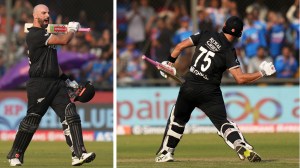Who versus CAG?
Having read Arun Shourie8217;s articles August 19,20 I have no objection to a CBI enquiry into the unbundling of the Delhi Vidyut Board i...

Having read Arun Shourie8217;s articles August 19,20 I have no objection to a CBI enquiry into the unbundling of the Delhi Vidyut Board if it will make such a distinguished person feel better 8212; it would, at least, enliven the retirement of several of us 8216;8216;8216;unknown persons8217;8217; in Government8217; who worked so hard to abolish that miserable organisation. But in his anxiety for company in the dock he has got it all so completely wrong that we can8217;t afford to wait for an investigating agency to clear the air.
First of all, there8217;s the basic question of comparing the sale of a hotel with unbundling a State Electricity Board. One is simply the sale of an asset. If it is undervalued the purchaser gains and people may allege rightly or wrongly that the Minister did so too. A regulated public utility is different. Unlike the investor who bought a Centaur hotel in Bombay and sold it off immediately at a large profit, the investor taking over a distribution company is not at liberty to sell off its wires, transformers etc. He can profit only by managing this licensed business under the terms of the licence, earning only such profit as the regulator allows him taking his investment into account besides, of course, his performance efficiency.
So in this case the higher we value the business, the more the investor benefits and the greater the burden on the consumer. In Delhi, the discoms get a return of 16 per cent on equity and free reserves every year for five years after which DERC will decide; the only other way the investors can profit is by overachieving the loss reduction targets. Tatas and BSES might have been happy to pay more and thus earn more. A World Bank publication on our privatisation 8212; which the World Bank had nothing to do with 8212; has commended us for not falling into the error of overvaluation as in Orissa.
So while it makes a lot of difference whether the Juhu Hotel was undervalued, it really does not matter in the same way in the case of DVB. CAG understood this, but only commented that we had completely relied on the arithmetic of our Government-owned consultants SBI Caps.
Mr Shourie8217;s core argument on the valuation is nothing short of a bloomer. He says the valuation figure of Rs 3,160 crore should have included the receivables of over 3,000 crore and thinks CAG missed this; and he makes much of the differing estimates of these receivables. No doubt, as CAG8217;s report brings out, there is some uncertainty about how much DVB8217;s consumers owed it and therefore about the Holding Company8217;s initial balance sheet. This confirms what a mess DVB was. But that has absolutely nothing to do with the valuation of the 8216;8216;enterprise8217;8217; at Rs 3,160 crore ; this was only the value assigned to the assets that were transferred to five successor utilities, viz. a generation company, a transmission company and three distribution companies.
DVB8217;s unserviceable liabilities of over Rs 17,000 crore and its receivables a dubious asset, whatever the figure were deliberately not so transferred, but retained in the Holding Company. Thus the new utility companies started with clean balance sheets. CAG has expressed concern over the Holding Company8217;s subsequent progress in recovering its receivables 8212; a different matter altogether.
Again, it is pure obfuscation to say 8216;8216;The two single bidders were given the right to collect this amount the same receivables and keep 20 per cent. But the relevant balance sheet showed that only Rs 279 crore were receivable by the distribution companies 8230; Reliance and Tatas got the right to keep over one thousand crore for nothing.8217;8217;
The facts are i DVB8217;s receivables, belonging to the Holding Company, have to be recovered from consumers when possible hence they are called 8217;receivables8217;; ii when the discoms recover them from non-Government consumers they keep 20 and pass 80 on to the Holding Company and keep nothing else; iii this 20 goes towards their Annual Revenue Requirement, thus saving tariff increases; it is not pocketed by the investors; iii but the initial collection of Rs 279 crores went to the discoms, since their only initial cash flows were payments received for electricity consumed just before unbundling and they had to keep up payments for power purchase; so Rs 279 crore were receivables in the discoms8217; balance sheets and the rest were in the Holding Company8217;s.
The writer was the last chairman of the Delhi Vidyut Board.
Email: jsagarvsnl.net
PART II
- 01
- 02
- 03
- 04
- 05






























